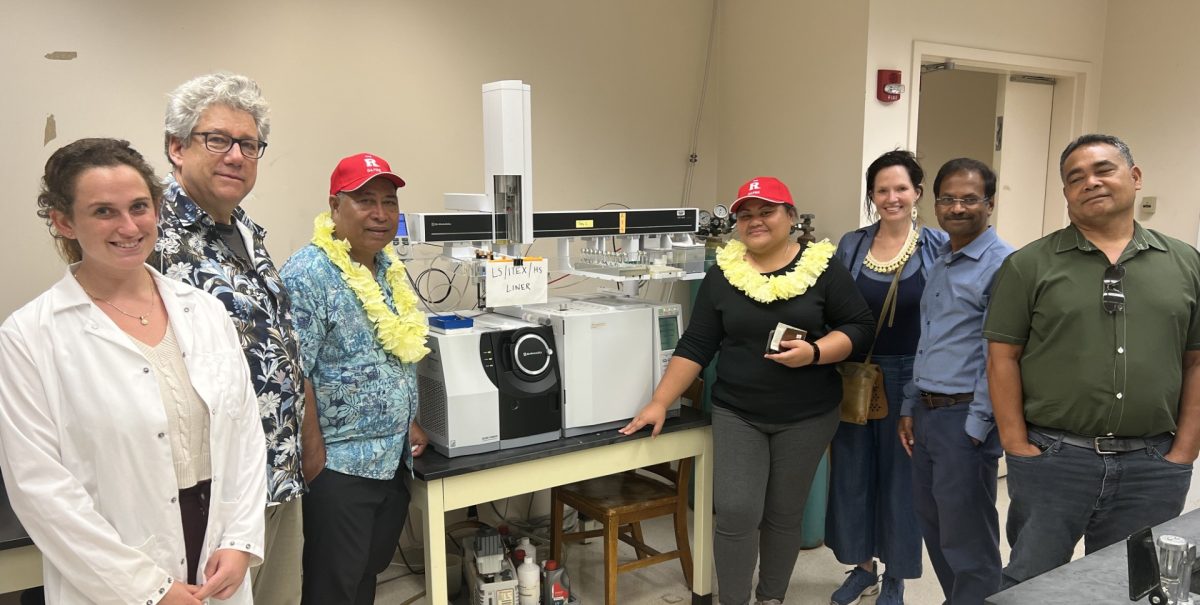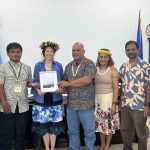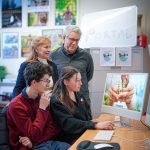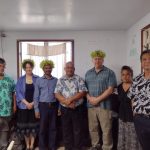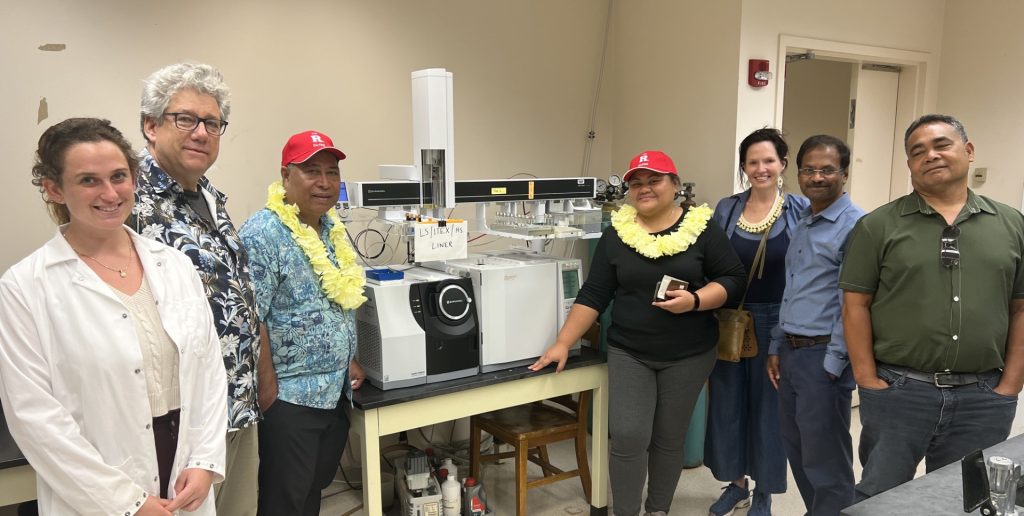
As one of America’s longest serving and renowned land-grant institutions, Rutgers University empowers food producers worldwide with cutting-edge scientific expertise. The university’s acclaimed “Jersey Roots, Global Reach” initiative shines through in its exceptional partnership with the Federated States of Micronesia (FSM), a vast island nation in the North Pacific.
To celebrate this landmark collaboration, Rutgers had the privilege of hosting two esteemed FSM dignitaries, Honorable Secretary Andrew Yatilman and Honorable Secretary Elina Akinaga, on September 21. Guided by Jim Simon, Dena Seidel, Ramu Govindasamy, AJ Both, Mark Robson, Roland Hagan and RCEI affiliate Julie Lockwood, the distinguished guests toured SEBS’s premier plant and marine science labs, research fields, and greenhouses, showcasing Rutgers’ advanced research facilities and innovations.
“I am truly grateful to finally visit Rutgers and see first-hand the breadth of scientific expertise that has been assisting our country these past few years,” said Andrew Yatilman, FSM’s Secretary of Environment, Climate and Emergency Management.
The Rutgers interdisciplinary food systems science team began its work with FSM in 2020 and is led by RCEI affiliate Jim Simon (Plant Biology) in concert with Ramu Govindasamy (DAFRE), Dena Seidel (Plant Biology) and RCEI affiliate Oscar Schofield (Marine and Coastal Sciences). Rutgers has been supporting FSM’s sustainable food production goals on several projects that include food security policy and assessing climate change’s impact on FSM’s farming families and strategies for the development of local food processing.
Core collaborating scientists from several Rutgers departments include Yariv Ben Naim (Plant Biology), RCEI affiliates AJ Both and James Shope (Environmental Sciences), Rolan Hagan and RCEI affiliate Dave Bushek (Marine and Coastal Sciences), and collaborating ethnobotanist Mike Balick from the New York Botanical Gardens as well economist Dr. Surendran Arumugam from Tamil Nadu Agricultural University, and Nolan Lewin and Julie Elmer from the Rutgers Food Innovation Center.
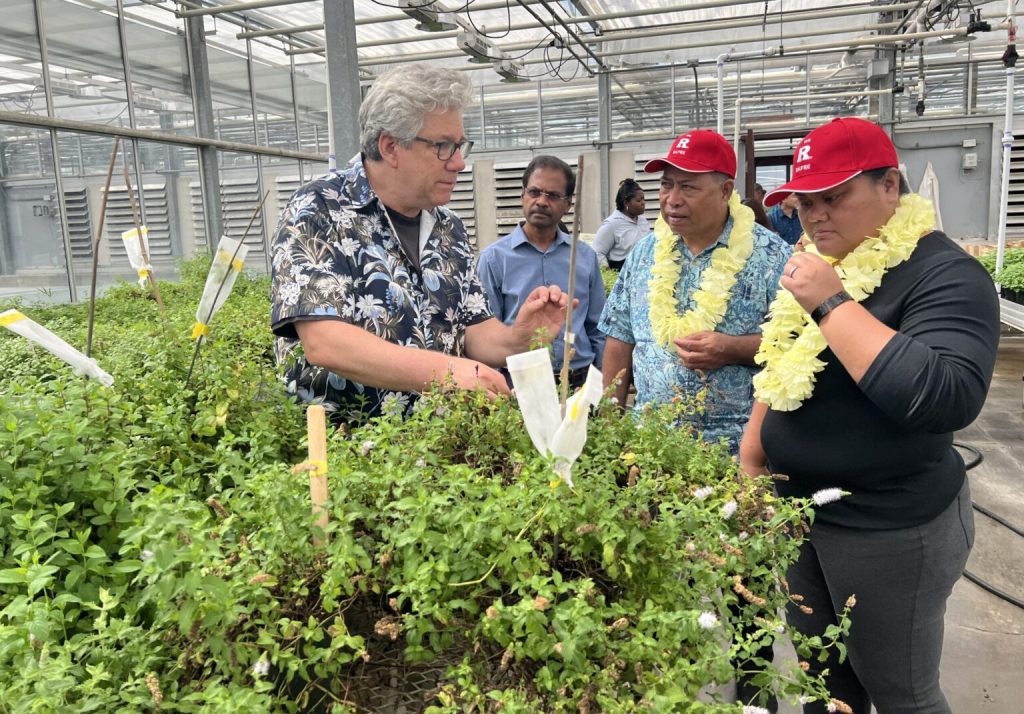
Additional Rutgers faculty who have contributed significantly to the projects for the FSM include RCEI affiliate Ethan Schoolman (Human Ecology), Emily Merchant (Public Health) and Daniel Hoffman (Nutritional Sciences). In 2022, Rutgers Global awarded this science team with a $10,000 seed grant to develop a replicable and sustainable food system model in partnership with FSM’s state of Pohnpei.
Rutgers work in the FSM builds upon decades of experience supporting food production in developing countries. “Tackling complex food system challenges internationally requires a multi-pronged approach with teams that include experts from many disciplines with varied skills. At the same time, we work very closely with local partners to ensure that the food production strategy that is developed and implemented is culturally relevant, environmentally and economically sustainable and what the community wants and needs,” said Simon.
To support holistic food system development, Rutgers departments of Plant Biology, Agriculture, Food and Resource Economics (DAFRE) and Marine and Coastal Sciences have joined together.
“Supporting food system development in Micronesia requires addressing food production challenges not just on land but also in the sea. Their ocean is their main resource and so monitoring also becomes key to protecting it,” added Schofield, whose team hosted the guests’ visit to Rutgers Center for Ocean Observation Leadership (RUCOOL).
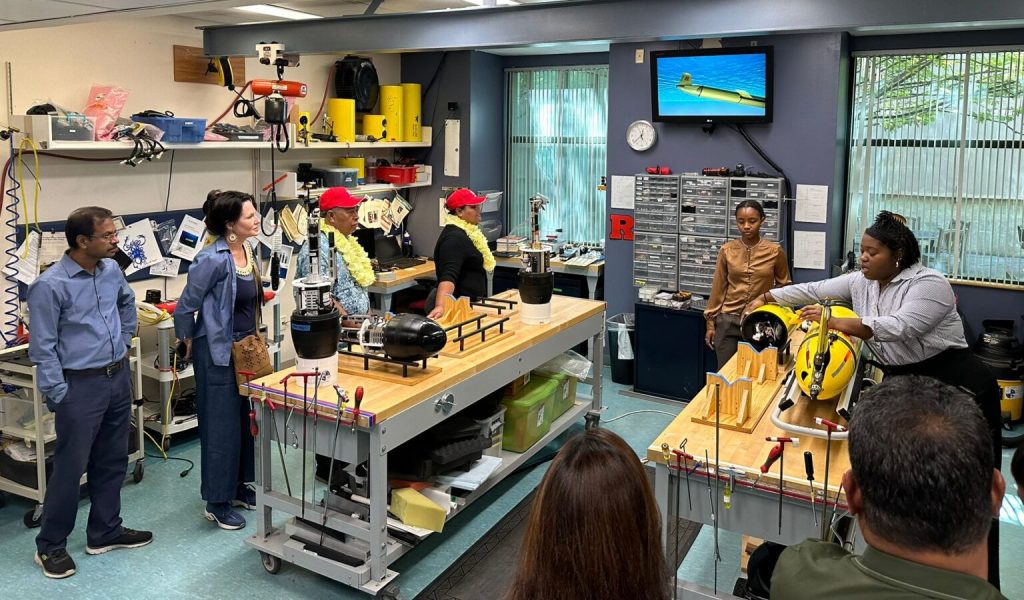
The Rutgers Food System Science team has undertaken its fifth project with the Pacific nation. Their current “Food Systems Solutions” initiative, in collaboration with the FSM Department of Resources and Development and Office of Trade, is funded by the US Department of Commerce’s Economic Development Administration. Led by Assistant Secretary Florian J. Yatilman and his team, Stanley Raffilman and Keenen Weirlangt in the FSM, Ramu Govindasamy leads the Food Systems Solutions data collection and research as principal investigator, with Simon and Seidel as co-leaders from Rutgers.
The Food Systems Solutions project aims to drive economic growth and job creation by enhancing local food production and processing. A critical element of this effort involves collecting and analyzing data from ten community stakeholder surveys, designed within the United Nations’ multi-stakeholder framework for sustainable food system development. “Our data shows that over 70% of FSM household expenditure is going toward imported foods which is making them food insecure. This project supports the states and the nation in transitioning to local food production and processing to strengthen local economies, create jobs and increase the health of the people of FSM,” said Govindasamy.
Past projects include the Green Climate Fund Baseline Assessment featuring data from extensive surveys with more than 600 farming families as well as crop forecasting and steps to enhance climate smart agriculture with a foreword by FSM’s President Wesley Simina. Building upon their original data, the Rutgers team was also asked to prepare the FSM’s Third National Communication to the United Nations Framework Convention of Climate Change outlining the impact of a changing climate on all sectors of FSM’s society published on the UN website. The Rutgers team also worked closely with Pohnpei state’s department of Resources and Development to prepare that state’s Food Security Policy and Master Plan.
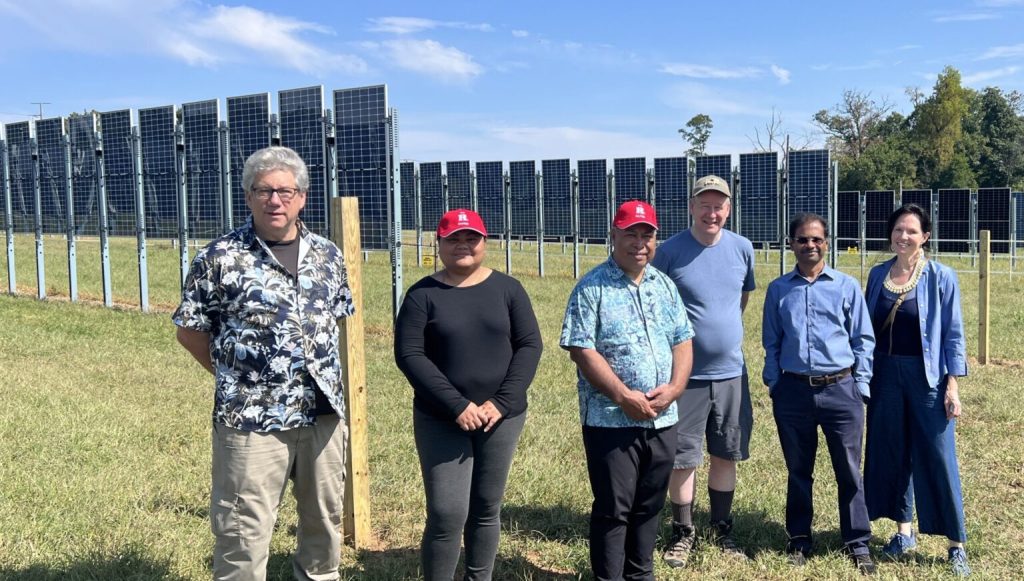
This transdisciplinary approach has been exciting and lead to student engagement of Rutgers graduate students that have been invited to collaborate on design, project data preparation and analysis and public policy. While graduate students Tori Rosen and Maxx Guazabara Rivera analyzed the nutritional content of moringa plants from the FSM; other students and visiting scientists have assisted with the data collection and analysis including Lara Brindisi, Eric Gomes, Martin Zorde, Nisha Khanna, and Erin Quinn (from Plant Biology), and El Hoima Barthelus (from Department of Agricultural, Food, and Resource Economics (DAFRE), and Dr. Rahmiye Figen Ceylan, a visiting DAFRE professor from Akdeniz University in Turkey.
Rutgers’ partnership with the FSM is facilitated and coordinated by Dena Seidel, a researcher and cultural anthropologist in Rutgers’ Plant Biology department, who has long worked in Micronesia and has served as the Honorary Ambassador at Large for Research and Academic Partnerships for two of the FSM states. “It’s exciting to see our scientists and students involved in the co-creation of sustainable food system development with the farming and fishing families of the FSM,” said Seidel.
During the dignitaries’ visit, Dean of the School of Graduate Studies, Distinguished Professor of Plant Biology and RCEI affiliate Mark Robson led a discussion on ways the Rutgers-FSM partnership could grow to include faculty, student and curriculum exchanges. “We are excited to explore how Rutgers and FSM can learn from each other and help strengthen the strong ties that have developed over these last few years,” said Robson.
At the end of their Rutgers visit, Honorable Secretary Elina Akinaga of FSM’s Department of Resources and Development said, “FSM is a developing nation and we are in need of scientific expertise to help us reach our sustainable development goals. We truly appreciate the Rutgers science team’s hard work and dedicated commitment to working with our nation and our states and we look forward to growing this partnership.”
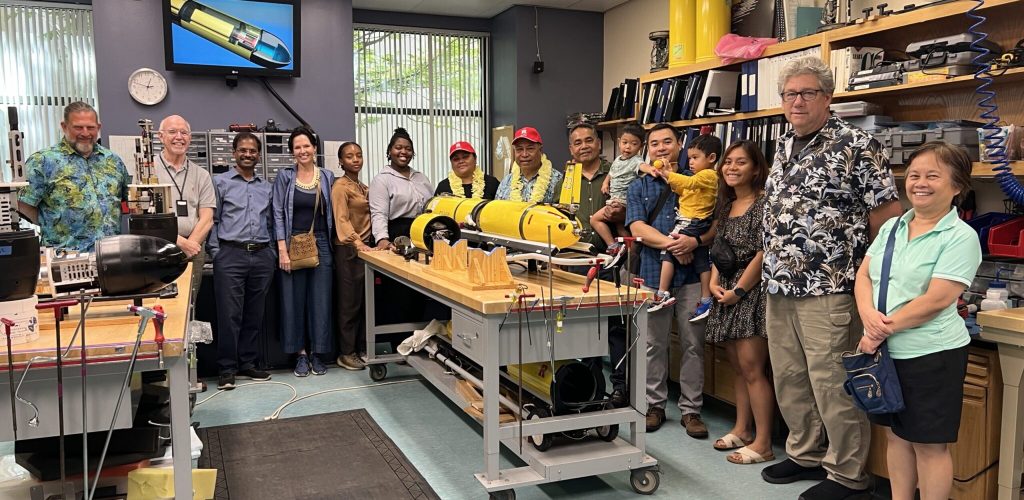
A version of this article was originally published by SEBS/NJAES Newsroom.




